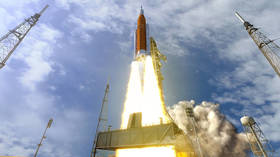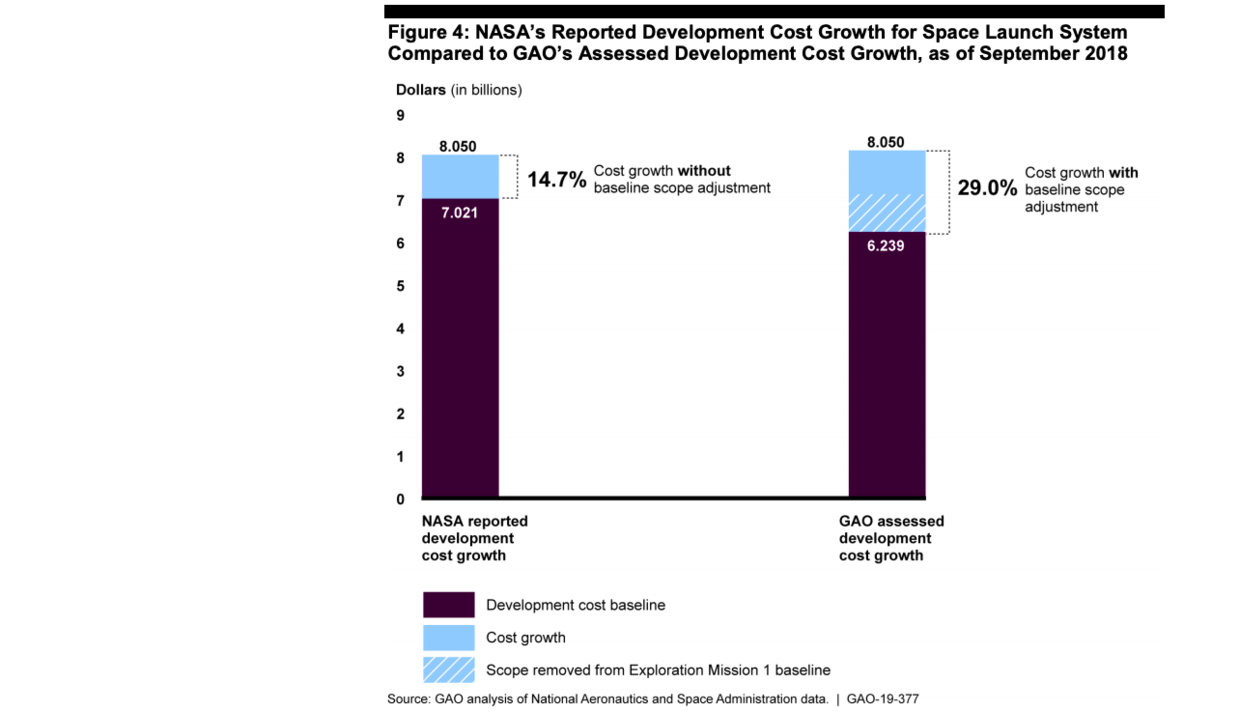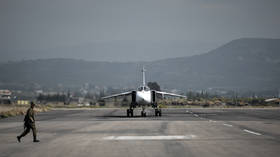NASA moon rocket costing $800mn more than space agency is admitting, says watchdog

NASA has been playing down the true cost of its Boeing Artemis-1 moon rocket, a government watchdog says. The delayed project is majorly over budget, costing $800 million more than the $1 billion overrun NASA has admitted-to.
The Artemis Program aims to get humans to the Moon by 2024, with Artemis-1 the first stage of the mission, to send an uncrewed Orion Multi-Purpose Crew Vehicle to orbit the Moon using a Space Launch System (SLS) rocket.
Also on rt.com NASA exec in charge of Artemis moon mission quits after just 6 weeks, ‘escorted out of HQ’But the SLS rocket contracted by Boeing is costing far more than NASA had planned, and far more than the additional cost of $1 billion the space agency has admitted-to, a new US Government Accountability Office report warns.
The GAO says the billion figure is “understated,” and a more accurate number is $1.8 billion. It found that NASA “shifted some planned SLS scope to future missions but did not reduce the program’s cost baseline accordingly.”

The report also found that NASA has been paying Boeing large award fees –amounting to $271 million– saying its performance has been “excellent” to “good,” despite delays. The rocket was originally planned to launch in 2017, but the date has been pushed back a number of times, with NASA hoping for lift-off in 2020, but the GAO says June 2021 is more likely.
The GAO also reported that Boeing could have done more to keep the launch on schedule. “As core stage production began, Boeing was focused on minimizing the number of technicians, in part to keep costs low, and hired about 100 technicians,” the report said, even though 2.5 times as many technicians were needed.
Also on rt.com Privatizing space? Strapped-for-cash NASA to open International Space Station to touristsNASA currently estimates that it will cost about $10 billion to develop the rocket and its ground systems at Kennedy Space Center, but this number doesn’t account for any technical issues that may arise during the testing and certification phase.
“The GAO report repeatedly projects the worst-case schedule outcome,” NASA’s William Gerstenmaier told the GAO, Ars Technica reports. He said that NASA took issue with the “unnecessarily negative language” used in the report and that it failed to acknowledge the progress made.
The GAO has recommended that NASA adopt more transparent cost-reporting practices.
Like this story? Share it with a friend!














